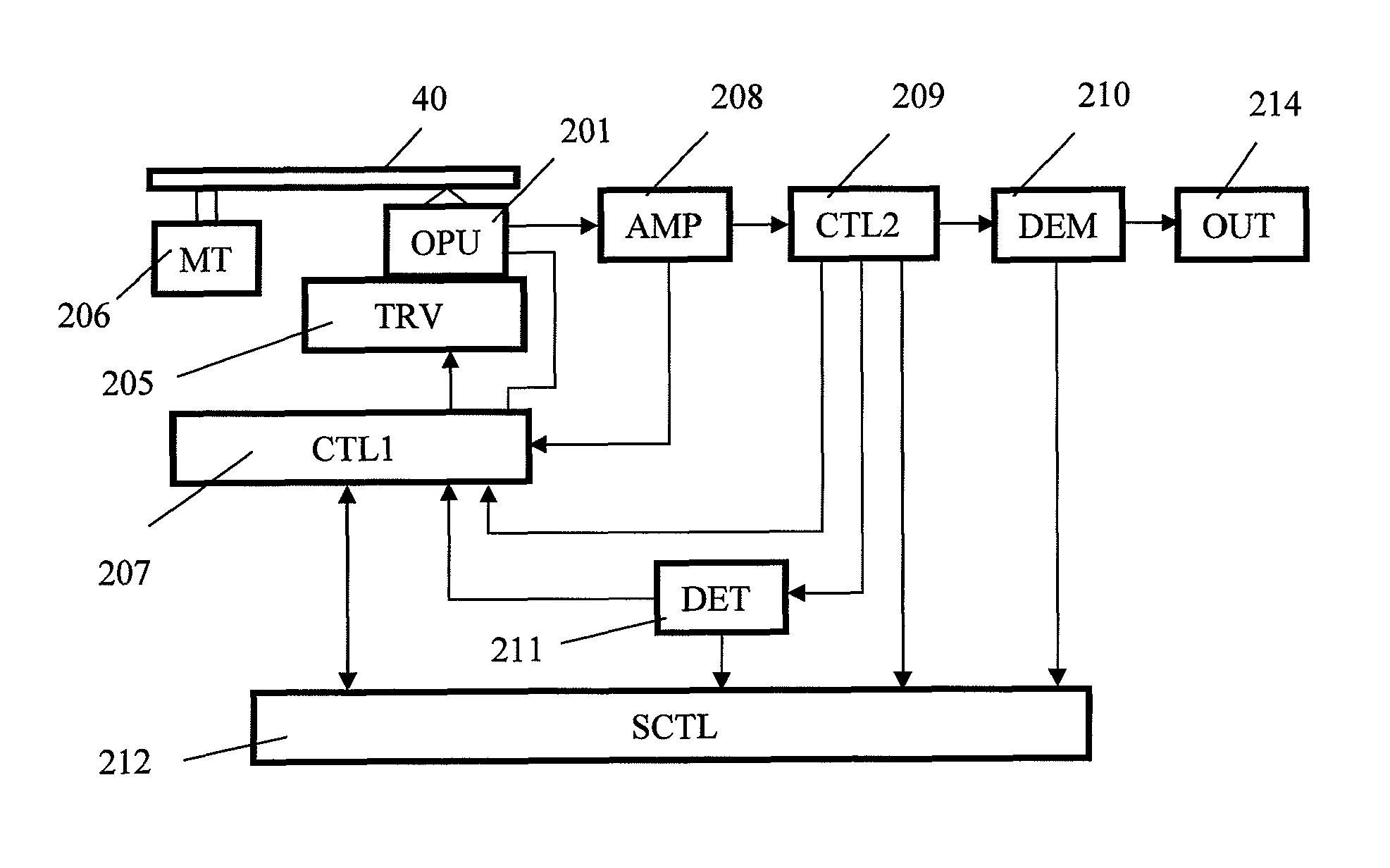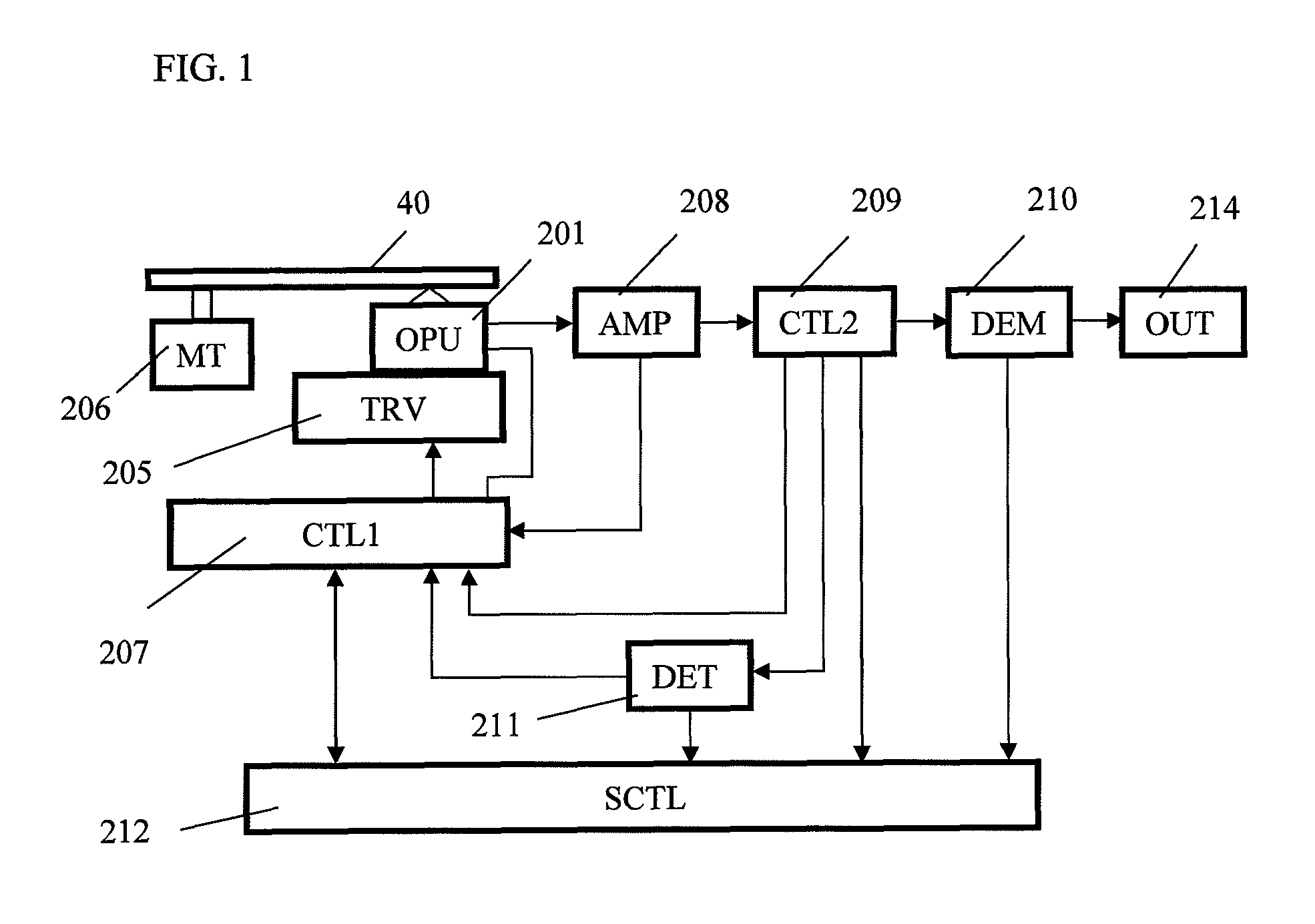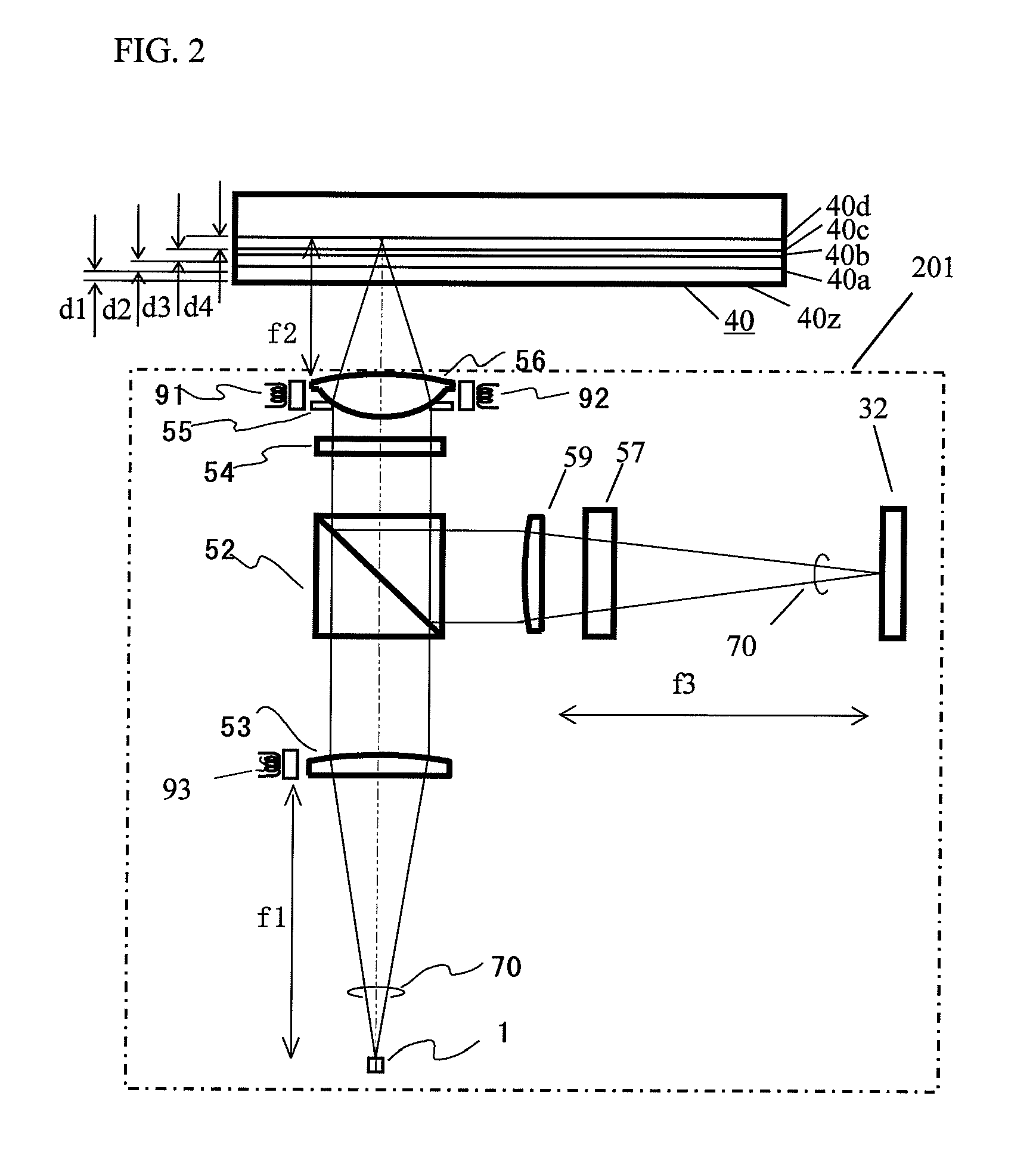Optical recording medium, method for recording/reproducing information to/from optical recording medium and apparatus for recording/reproducing information
a technology of optical recording medium and optical recording medium, which is applied in the direction of mechanical recording, record information storage, instruments, etc., can solve the problems of difficult to read stable signals, spherical aberration, and impede recording/reproduction, so as to achieve the effect of eliminating spherical aberration
- Summary
- Abstract
- Description
- Claims
- Application Information
AI Technical Summary
Benefits of technology
Problems solved by technology
Method used
Image
Examples
first embodiment
[0086]A first embodiment of the invention will be described hereinbelow with reference to FIGS. 1 and 2.
[0087]FIG. 1 shows the configuration of an optical information apparatus according to the invention. An optical pickup head apparatus 201 (also called an optical pickup) emits a laser beam having a wavelength λ of 405 nm to an optical recording medium 40, and reproduces a signal recorded on the optical recording medium 40. A transport controller 205 moves the optical pickup head apparatus 201 along the radial direction of the optical recording medium 40 in order to record / reproduce information in an arbitrary position on the optical recording medium 40. A motor 206 for driving the optical recording medium 40 rotates the optical recording medium 40. A controller 207 controls the optical pickup head apparatus 201, the transport controller 205, and the motor 206.
[0088]An amplifier 208 amplifies a signal read by the optical pickup head apparatus 201. An output signal from the amplifie...
second embodiment
[0098]FIG. 4 is a diagram showing an example of the configuration of an optical recording medium 41 according to a second embodiment.
[0099]In the first embodiment, it is the precondition that the thickness dhμm between the information recording faces is constant. Consequently, to control the light amount ratio of Sb as unnecessary light to Sb including an inherently necessary information, the transmittance th of the protection layer between the information recording faces of the optical recording medium and the reflectance αh of each of the information recording faces are set. In this case, however, flexibility of the transmittance th and the reflectance αh is regulated. In the second embodiment, by changing the thickness dhμm between neighboring information recording faces, flexibility in setting of the transmittance th and the reflectance αh can be increased. For example, in the case of recording / reproducing information to / from an information recording face 41d in the optical reco...
third embodiment
[0100]In the second embodiment, the conditions under which the focus fluctuation amount becomes 10% or less are calculated by the thickness difference between the neighboring base materials (dh−d(h−1)), concretely, (d4−d3) and the light quantity ratio Sb / Sd of Sb as unnecessary light to Sd including an inherently necessary signal. In a third embodiment, also in the case where there is no base material thickness difference, that is, in the case where the base material thickness dh between the signal recording faces is almost constant, by changing the refractive index of the base material between the signal recording faces, similar effects can be obtained. In this case, when the thickness between the signal recording faces is dμm and the refractive index of the base material between the signal recording face “h” and the signal recording face “h−1” is nh, by setting the transmittance th, reflectance αh, and the refractive index nh so as to satisfy the relation of ((α(h−1)2×α(h−2)) / (th2...
PUM
| Property | Measurement | Unit |
|---|---|---|
| thickness d2 | aaaaa | aaaaa |
| thickness d2 | aaaaa | aaaaa |
| wavelength λ1 | aaaaa | aaaaa |
Abstract
Description
Claims
Application Information
 Login to View More
Login to View More - R&D
- Intellectual Property
- Life Sciences
- Materials
- Tech Scout
- Unparalleled Data Quality
- Higher Quality Content
- 60% Fewer Hallucinations
Browse by: Latest US Patents, China's latest patents, Technical Efficacy Thesaurus, Application Domain, Technology Topic, Popular Technical Reports.
© 2025 PatSnap. All rights reserved.Legal|Privacy policy|Modern Slavery Act Transparency Statement|Sitemap|About US| Contact US: help@patsnap.com



